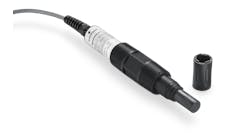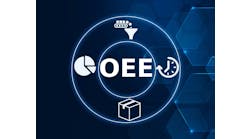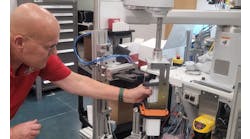|
T |
he best compliment anyone can give an up-and-coming rally or race car driver in Europe is, “It is time for you to work on your English.” The implication is that the driver is so good, it is only a matter of time before he or she will win races and be interviewed before a world television audience in English.
Speaking English with fluency also makes the driver a marketable commodity, one that appeals to sponsors. Long-time NASCAR watchers have probably noticed an improvement in driver diction, as Southern good ol’ boys learn that it takes more than driving ability to succeed in NASCAR. Even good ol’ boys have to learn good English.
Clearly, English is the world’s most popular language. English is spoken across Europe, India, the Americas and the Pacific region. After World War II, English was added to many grade-school curriculums in Europe, so just about everyone on the continent under the age of 60 has had several years of study with the language.
|
"Even in an international world, the language of business is English." |
Speaking several languages comes naturally to Europeans, so English is usually not a big challenge for them to learn. While some say French is the language of love and diplomacy, English has become the world’s universal language for everything else. I speak no language but English, have traveled through much of Europe and never had a problem, because nearly everyone speaks English. Even Stop signs in Europe are red, octagonal and say “Stop.”
Air-traffic controllers worldwide and all international pilots are required to speak English, so that a pilot can converse equally well with controllers in Katmandu, Kokomo and Khartoum.
At a Siemens press conference in Frankfort, Germany, we were informed that day-to-day business at Siemens was conducted in English, including meetings, memoranda and e-mail, because, Siemens explained, their business was international, and the language of business is English.
And, just as English is the language of international business and air traffic control, so it is with process control.
An engineer from Compressor Controls (Des Moines, Iowa) told me he has installed control systems all over the world, including remote third-world nations. Installation and startup teams from assorted vendors and contractors include Russians, Indians, Pakistanis, Germans, Americans, and every other nationality you can imagine, he says, but everyone speaks English on the job.
On a visit to TopTools, a French HMI/SCADA software company in Paris, I saw American control magazines, and manuals, catalogs, brochures and data sheets from various companies in English scattered around the offices.
The classic reference books from Bela Liptak, Greg Shinskey, Greg McMillan, and others are all in English, with few (if any) translated into other languages.
“I rarely find a manual or handbook in Spanish,” says Jorge Cano Carmona, a process control engineer at MetMex Penoles S. A. in Torreón Coah, México. “All the books and control magazines we use are written in English.”
“I've attended courses at ABB and Emerson Process Mexico,” he says. “In some cases they translate the original handbooks and manuals into Spanish for training purposes. I prefer to use manuals and books written in English to avoid errors in translation.”
And therein lies what may be the biggest problem of all: manuals and documentation in bad English. I have long ranted about the terrible state of documentation from U.S. vendors. Some manuals are nearly impossible to understand even for American engineers, so imagine how difficult it is for a non-American to understand. Even worse, imagine what a translation service will do to it: people who don’t know the control business translating documentation they don’t understand does not bode well for international customer relations.
We’ve all seen unreadable Japanese-to-English translations of electronic equipment manuals, and now we are seeing equally bad German-to-English translations. I suspect that English-to-Japanese and English-to-German manuals are even worse, because the original English documents are so poorly written.
Control equipment vendors are selling products around the world. Invensys, for example, operates in 60 countries. It behooves all vendors, therefore, to be sure their manuals and documentation are understandable by all their customers. To accomplish this, they need to write them in good English to start with.
That way, at least one good thing will come from the outsourcing and globalization of our control industry: maybe we’ll finally get better manuals and documentation.
Latest from Asset Management

Leaders relevant to this article:



